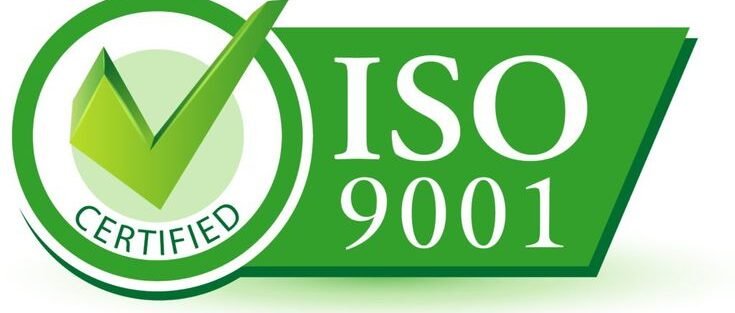ISO 9001 Certification: The Key to Building Trust and Quality Excellence
In today’s competitive business landscape, quality management is more than just a goal — it’s a necessity. Whether you’re a startup aiming to build credibility or an established organization looking to enhance efficiency, ISO 9001 Certification can be your pathway to success. It not only strengthens internal processes but also builds customer confidence and improves business performance.
In this blog, we’ll explore what ISO 9001 certification is, its benefits, the process, and how it can transform your business.
What is ISO 9001 Certification?
ISO 9001 is an international standard that sets out the criteria for a Quality Management System (QMS). It is published by the International Organization for Standardization (ISO) and is recognized globally as the benchmark for quality assurance.
The current version, ISO 9001:2015, focuses on continuous improvement, customer satisfaction, and the involvement of top management in the quality process. It applies to all types of businesses — from manufacturing and healthcare to IT and education.
ISO 9001 certification demonstrates that your organization consistently provides products and services that meet customer and regulatory requirements, while continually improving processes.
Why ISO 9001 Certification Matters
Achieving ISO 9001 certification isn’t just about compliance — it’s about creating a culture of quality and accountability. Here’s why it matters:
1. Improved Business Efficiency
ISO 9001 requires you to define processes, monitor performance, and identify areas of improvement. This structured approach helps reduce errors, eliminate waste, and optimize workflow — leading to higher productivity and cost savings.
2. Customer Confidence and Satisfaction
Clients prefer working with certified companies because it assures them of consistent quality. With ISO 9001, you can enhance customer satisfaction through better service delivery and proactive problem-solving.
3. Competitive Advantage
In many industries, ISO 9001 certification is a prerequisite for contracts or tenders. Being certified gives your company a competitive edge and boosts your reputation in both local and international markets.
4. Employee Engagement and Responsibility
When processes are clear, and roles are well-defined, employees feel more engaged and motivated. ISO 9001 promotes teamwork, responsibility, and continuous training — creating a culture of excellence.
5. Global Recognition
ISO 9001 is globally recognized, which means your certification speaks the language of quality anywhere in the world. This is especially valuable for businesses expanding into international markets.
The ISO 9001:2015 Principles
The ISO 9001:2015 standard is built on seven core quality management principles that form the foundation for a strong QMS:
Customer Focus – Meeting and exceeding customer expectations.
Leadership – Creating unity of purpose and direction within the organization.
Engagement of People – Empowering employees at all levels to contribute effectively.
Process Approach – Managing activities as interconnected processes for consistent results.
Improvement – Emphasizing continuous improvement across all areas.
Evidence-Based Decision Making – Basing decisions on data analysis and evaluation.
Relationship Management – Building strong relationships with suppliers, partners, and stakeholders.
Understanding and implementing these principles help organizations achieve operational excellence and sustainable success.
The ISO 9001 Certification Process
Getting certified involves several structured steps. Here’s how the process generally works:
1. Gap Analysis
A preliminary assessment is conducted to identify areas where your current processes fall short of ISO 9001 requirements. This helps create a roadmap for implementation.
2. Documentation
You’ll need to develop and maintain documentation such as quality manuals, process maps, and work instructions that align with ISO 9001 standards.
3. Implementation
This stage involves training employees, applying new procedures, and ensuring compliance with the QMS across all departments.
4. Internal Audit
An internal audit checks if the system is working as intended. Any non-conformities are identified and corrected before the final audit.
5. Certification Audit
A third-party certification body conducts an external audit to verify compliance. If your organization meets all requirements, ISO 9001 certification is awarded.
6. Continuous Improvement
Once certified, ongoing audits and reviews ensure your QMS remains effective and continually improves over time.
Benefits of ISO 9001 Certification
1. Enhanced Reputation
ISO certification sends a strong message to customers and stakeholders that your organization values quality and accountability.
2. Increased Profitability
Improved processes and customer satisfaction directly contribute to better financial performance and market share growth.
3. Better Risk Management
The structured framework of ISO 9001 helps identify potential risks early and establishes preventive measures.
4. Streamlined Operations
ISO 9001 simplifies management processes by eliminating inefficiencies and standardizing operations across departments.
5. Employee Empowerment
Employees become more engaged as they understand how their work contributes to organizational goals, fostering motivation and responsibility.
ISO 9001 Certification for Small and Medium Businesses
Many small and medium-sized enterprises (SMEs) assume that ISO certification is only for large corporations — but that’s far from true.
In fact, ISO 9001 is designed to be flexible and scalable. Small businesses benefit by improving internal efficiency, attracting larger clients, and building credibility in competitive markets. Moreover, it helps SMEs qualify for government tenders or international projects that require certified suppliers.
Common Myths About ISO 9001 Certification
Myth 1: It’s only for big companies.
Reality: ISO 9001 applies to any organization, regardless of size or sector.
Myth 2: It’s too expensive.
Reality: The long-term cost savings and business growth outweigh the initial investment.
Myth 3: It’s just paperwork.
Reality: While documentation is important, ISO 9001 focuses on actual process improvement and practical implementation.
How to Maintain Your ISO 9001 Certification
Certification isn’t a one-time achievement — it’s an ongoing commitment to excellence. To maintain certification, organizations must:
- Conduct annual surveillance audits.
- Continuously monitor and measure performance.
- Review feedback and implement corrective actions.
- Update processes to meet changing market and regulatory demands.
A consistent focus on improvement keeps your business competitive and future-ready.
Conclusion
ISO 9001 certification is not just a badge of quality — it’s a strategic investment in your organization’s future. It enhances efficiency, boosts customer satisfaction, and builds a strong reputation in the marketplace.
Whether you’re a small business owner or part of a large corporation, adopting ISO 9001:2015 helps you achieve long-term growth, credibility, and operational excellence.
If your goal is to win customer trust, improve productivity, and stand out in the global market — ISO 9001 certification is the key to unlocking that success.





